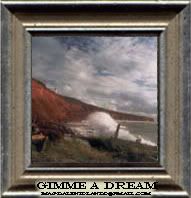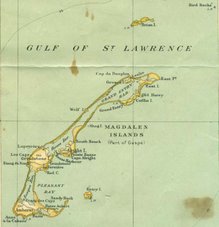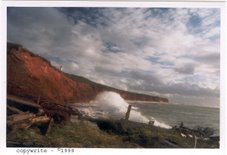Canadian Coast Guard Reveals New Policy For Small Boats
The Canadian Coast Guard has adopted new regulations concerning the towing of small boats (under 30 meters), in icy conditions. These regulations are creating quite a stir amongst seal hunters and factory workers who transform the seal meat and pelts into usable items. Apparently the Coast Guard will not be towing any more boats, in light of the towing accident last March, where four islanders lost their lives, during the seal hunt.
of small boats (under 30 meters), in icy conditions. These regulations are creating quite a stir amongst seal hunters and factory workers who transform the seal meat and pelts into usable items. Apparently the Coast Guard will not be towing any more boats, in light of the towing accident last March, where four islanders lost their lives, during the seal hunt.
The only way the Coast Guard will intervene with a boat is if the crew is in danger or a member of the crew is in a life threatening situation. They will then remove the crew from the boat in question and the captain of the distressed must call a privately owned towing company to aide if there is a malfunctioning boat involved. The ice breaker may bring technical crew to aide in getting the boat mobile. However, rescue operations are what the Coast Guard is obligated to do.
For the seal hunters, if the Ca nadian government truly supported the hunt and the Fisheries and Oceans Canada supervise these activities, then the Coast Guard ice breakers, which are maintained by the ministry, must continue to aide the sealers boats in the case of mechanical distress.
nadian government truly supported the hunt and the Fisheries and Oceans Canada supervise these activities, then the Coast Guard ice breakers, which are maintained by the ministry, must continue to aide the sealers boats in the case of mechanical distress.
Needless to say, many islanders intend to contest this new policy adopted by the Coast Guard, following the shipwreck of the Adadien II which was a simple towing operation for a mechanical failure, effected by the ice breaker of the Coast Guard, that went all wrong and four Magdalen Islands seal hunters died during the accident. See:
The Vice President of the factory for the treatment of seal pelts Tamasu, Paul Boudreau, compared the role of the Coast Guard to those emergency services during accidents on the highway. “If an ambulance caused an accident on the road, they wouldn't stop all ambulances from rolling just because one ambulance was the problem. I don’t think that the Coast Guard should stop it’s services because there is a problem with ice breaker,” validated Paul Boudreau.
Of the numerous hunters, many are now thinking of abandoning the hunt, particularly if the Coast Guard refuses to tow boats less than 30 meters, except in the case of distress or in life threatening cases. In case of mechanical failure, the captain now must make a call to the private towers. This might not justify the price of going to the hunt.
In light of the new policy, when the captain of a small sealing vessel calls a private towing company, it is he who must 'foot the bill', so to speak. As it was, prior to this year, the Canadian Coast Guard did not charge for the service. Now a sealing captain must re-evaluate the costs of the hunt. The boat he is using is undoubtedly the same he uses during the lobster and crab seasons. Now he must add the extra potential costs of losing his outfit to the sealing season. I'm certain many hunters will think twice before sailing their precious commodity into waters that have ice cakes and bergs floating loosely around.
 of small boats (under 30 meters), in icy conditions. These regulations are creating quite a stir amongst seal hunters and factory workers who transform the seal meat and pelts into usable items. Apparently the Coast Guard will not be towing any more boats, in light of the towing accident last March, where four islanders lost their lives, during the seal hunt.
of small boats (under 30 meters), in icy conditions. These regulations are creating quite a stir amongst seal hunters and factory workers who transform the seal meat and pelts into usable items. Apparently the Coast Guard will not be towing any more boats, in light of the towing accident last March, where four islanders lost their lives, during the seal hunt.The only way the Coast Guard will intervene with a boat is if the crew is in danger or a member of the crew is in a life threatening situation. They will then remove the crew from the boat in question and the captain of the distressed must call a privately owned towing company to aide if there is a malfunctioning boat involved. The ice breaker may bring technical crew to aide in getting the boat mobile. However, rescue operations are what the Coast Guard is obligated to do.
For the seal hunters, if the Ca
 nadian government truly supported the hunt and the Fisheries and Oceans Canada supervise these activities, then the Coast Guard ice breakers, which are maintained by the ministry, must continue to aide the sealers boats in the case of mechanical distress.
nadian government truly supported the hunt and the Fisheries and Oceans Canada supervise these activities, then the Coast Guard ice breakers, which are maintained by the ministry, must continue to aide the sealers boats in the case of mechanical distress.Needless to say, many islanders intend to contest this new policy adopted by the Coast Guard, following the shipwreck of the Adadien II which was a simple towing operation for a mechanical failure, effected by the ice breaker of the Coast Guard, that went all wrong and four Magdalen Islands seal hunters died during the accident. See:
The Vice President of the factory for the treatment of seal pelts Tamasu, Paul Boudreau, compared the role of the Coast Guard to those emergency services during accidents on the highway. “If an ambulance caused an accident on the road, they wouldn't stop all ambulances from rolling just because one ambulance was the problem. I don’t think that the Coast Guard should stop it’s services because there is a problem with ice breaker,” validated Paul Boudreau.
Of the numerous hunters, many are now thinking of abandoning the hunt, particularly if the Coast Guard refuses to tow boats less than 30 meters, except in the case of distress or in life threatening cases. In case of mechanical failure, the captain now must make a call to the private towers. This might not justify the price of going to the hunt.
In light of the new policy, when the captain of a small sealing vessel calls a private towing company, it is he who must 'foot the bill', so to speak. As it was, prior to this year, the Canadian Coast Guard did not charge for the service. Now a sealing captain must re-evaluate the costs of the hunt. The boat he is using is undoubtedly the same he uses during the lobster and crab seasons. Now he must add the extra potential costs of losing his outfit to the sealing season. I'm certain many hunters will think twice before sailing their precious commodity into waters that have ice cakes and bergs floating loosely around.















No comments:
Post a Comment